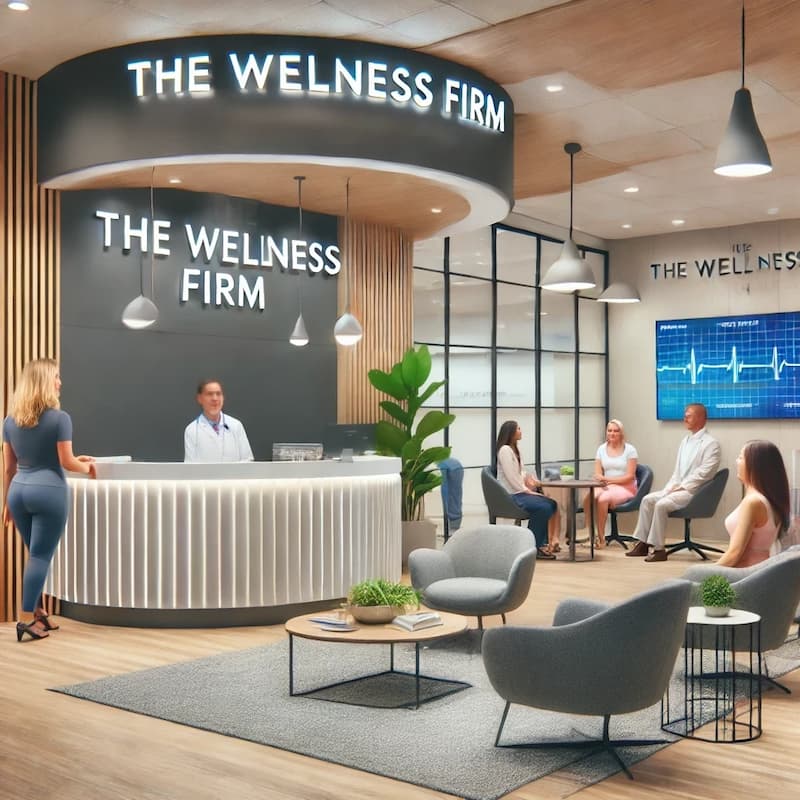

When you need COVID-19 and PCR testing did you need reliable results? The COVID-19 nose swab-PCR test is a reliable and accurate test. If you have COVID-19, a positive test will indicate that you are likely to have it. Negative results indicate that you did not have COVID-19 when the test was performed. If you are experiencing symptoms or were exposed to COVID-19, go get tested locally by a mobile testing station or call TheWellnessFirm to come to you!
PCR means polymerase chain reaction. This test is used to detect genetic material in a specific organism such as viruses. If you are infected, the test will detect it. Even if you have not been infected, the test can detect fragments of viruses.
The polymerase chain reactions (PCR) test for COVID-19 is a molecular test that analyzes your upper respiratory specimen to look for genetic material (ribonucleic acids or RNA) from SARS-CoV-2. This virus causes COVID-19. The PCR technology is used by scientists to convert small amounts of RNA in specimens into deoxyribonucleic acids (DNA). This is repeated until SARS-CoV-2 can be detected if it is present. Since February 2020, the PCR test has been recognized as the best test to diagnose COVID-19. It is reliable and accurate. COVID-19 And PCR Testing are essential If you experience any of these symptoms, your healthcare provider may recommend that you get tested:
Some people with COVID-19 may not experience symptoms. Not all people with COVID-19 experience all the symptoms. If you feel unwell or have questions about the COVID-19 pandemic, please consult your healthcare provider.
The COVID-19 PCR Test requires three steps:
Sample collection: A healthcare provider uses the swab for collecting respiratory material from your nose. A swab can be described as a flexible, long-handled tip that is used to clean your nose. There are many types of nose swabs. Some go directly into your nostrils while others reach deeper into the nasal cavity. Any type of swab will be sufficient to collect material for the COVID-19-PCR test. The swab should be sealed in a tube after collection and sent to a laboratory.
What do the COVID-19 PCR test results mean?
Positive test results indicate that you are likely to have a SARS-CoV-2 infection. It could be an asymptomatic condition, but if symptoms are present, this is known as COVID-19. The majority of people with mild illnesses can recover at home. If your symptoms worsen or you have any questions, please contact your healthcare provider.
If your test results are negative, it means that you didn’t have a SARS-CoV-2 infection at the time your specimen was taken. It is possible to have COVID-19 and not have the virus detected through the test. This could be the case if you have been infected recently but don’t feel any symptoms. It also might happen if your COVID-19 test results are negative for longer than one week. Negative results don’t necessarily mean that you are safe. You could be exposed to COVID-19 and infect others.
Talk to your healthcare provider if your test comes back positive. If you are unsure, keep your home clean and stay away from other people. Continue to protect yourself and your family from COVID-19 if you get a negative test. Learn more about what you should do if your test is positive, and how to avoid getting infected by COVID-19. Your test results should be available within 24 hours of sample collection. However, it is possible for some tests to take up to a few days depending on the time it takes for the sample to reach the laboratory.
The PCR test can detect very little virus material because it is so sensitive. The test can detect fragments of the SARS-2 virus even after you have recovered from COVID-19. They are no longer contagious. You may still test positive even if you haven’t been exposed to the SARS-CoV-2 viruses in the distant future.
Infection can last for several months in immunocompromised people. Healthy people can also become infected again. SARS-CoV-2 can be tested in people who are healthy but may have recovered from COVID-19. Please consult your healthcare provider.
Two types of COVID-19 tests are available: the PCR and antigen tests.
Which of the COVID-19 and PCR testing is more reliable?
Although the antigen test is more sensitive than the PCR test, it is generally faster. The antigen test may not be as accurate as PCR. Your healthcare provider might request a positive PCR test to confirm your negative result.
Where Can I Receive COVID-19 and PCR Testing?
A test may be required if you are experiencing symptoms of COVID-19, or if you were exposed to someone who has symptoms or has tested positive. Talk to your healthcare provider first. The provider will discuss your symptoms with you in person or via video. The provider may order a test, and help you locate a testing site and time. Remember that even if you haven’t developed symptoms after being exposed to the SARS-CoV-2 virus, you should call the testing center first to confirm their ability to accommodate you. The Wellness Firm services include workplace flu clinics, workplace flu vaccination providers, onsite rapid Covid testing in St Pete, the physical exam for employment, as well as American Heart Association CPR certification classes. Founded by local Firemen, The Wellness Firm has been providing a safer Tampa Bay since 2006. Contact us today for more information or to set up testing!
Copyright© 2024 The Wellness Firm. All Rights Reserved.